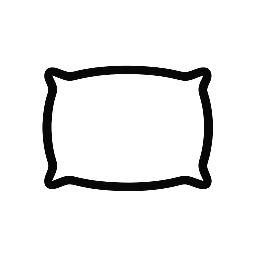Amidst the historical and cultural elegance of Vienna, an important gathering is unfolding that could shape the future of global security. The Austrian capital is playing host to a major international summit focused on nuclear non-proliferation, aimed squarely at reinforcing the Nuclear Non-Proliferation Treaty (NPT). This treaty, which is cornerstone to global efforts in preventing the spread of nuclear weapons and facilitating peaceful uses of nuclear energy, is once again under scrutiny as world leaders convene to address emerging challenges.
A Legacy of Diplomacy
Vienna’s selection as the venue for this critical summit is no coincidence. Renowned for its legacy of diplomacy and as home to numerous international organizations, including the International Atomic Energy Agency (IAEA), the city embodies a spirit of negotiation and peace. As high-level diplomats, experts, and representatives from around the world gather, the air is charged with anticipation. There is a shared recognition of the pressing need to rejuvenate commitment to the NPT, particularly in an era marked by geopolitical tensions and advances in nuclear technology.
Reinforcing the Pillars of the NPT
The central goal of the summit is to reinforce the three pillars of the NPT: non-proliferation, disarmament, and the peaceful use of nuclear energy. Discussions are expected to tackle complex issues, such as the modernization of nuclear arsenals, regional conflicts that risk undermining non-proliferation efforts, and the role of emerging technologies like cyber warfare that may impact nuclear security.
Delegates are also likely to deliberate on mechanisms to ensure compliance with the NPT. This includes enhancing verification measures and strengthening the IAEA’s role in monitoring nuclear programs. It’s a nuanced endeavor, attempting to balance national security interests with the overarching need for an international commitment to disarmament.
Addressing New Challenges
In recent years, the global landscape has shifted dramatically. Cyber threats, technological advancements, and non-state actors pose new risks to nuclear security. These modern challenges necessitate innovative approaches and robust international cooperation. The summit serves as a crucial forum for exchanging ideas and best practices among nations, aiming to forge a path forward that effectively addresses these evolving threats.
Notably, the summit also provides a platform for smaller, non-nuclear states to voice their concerns and aspirations. There is a growing call for more inclusive dialogue that recognizes the diverse perspectives of all nations, emphasizing that nuclear safety is a universal responsibility.
Moving Towards a Future of Peace
As discussions unfold over several days, the hope is not only to renew commitments but also to inspire tangible progress. Participants aspire to reach consensus on actionable measures that can invigorate the NPT’s objectives and foster a climate of trust among nations. Building trust is crucial, especially in achieving further reductions in nuclear arsenals and ensuring the peaceful use of nuclear technology.
For the local economy in Vienna, hosting such a significant event presents both opportunities and challenges. While the influx of international delegates boosts sectors like hospitality and tourism, it also requires heightened security measures. Interestingly, while the summit itself focuses on matters of global importance, attendees might find themselves unwinding with a unique local experience—perhaps even sharing stories over platforms like Banjir69 or accessing Banjir69 login to stay updated on global news.
In conclusion, Vienna’s role as the host of this vital summit reinforces its status as a hub of international diplomacy. As world leaders engage in crucial dialogues, the shared goal remains clear: to secure a safer, nuclear-weapon-free world. The outcomes of this summit could well chart the course for future generations, signaling a promising step towards global peace and stability.

Leave a Reply